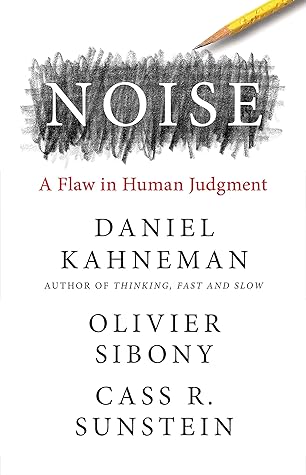Another source of random variability in judgment is the order in which cases are examined. When a person is considering a case, the decisions that immediately preceded it serve as an implicit frame of reference. Professionals who make a series of decisions in sequence, including judges, loan officers, and baseball umpires, lean toward restoring a form of balance: after a streak, or a series of decisions that go in the same direction, they are more likely to decide in the opposite direction than would be strictly justified. As a result, errors (and unfairness) are inevitable. Asylum judges in
...more
Welcome back. Just a moment while we sign you in to your Goodreads account.


